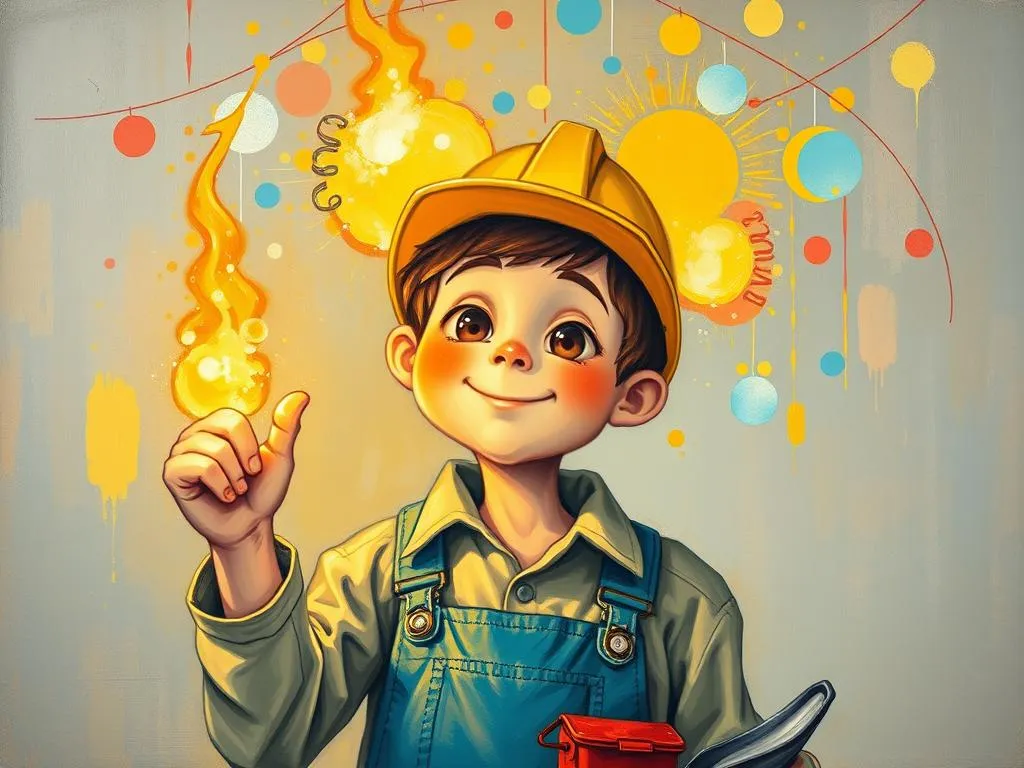
Dreams are a fascinating realm of the human psyche, often providing insights into our subconscious thoughts, feelings, and experiences. Among the myriad of dreams that people encounter, one recurring theme is that of a worker boy. This symbol can evoke a range of emotions and interpretations, prompting individuals to explore their inner worlds. Understanding the significance of this dream symbol can illuminate aspects of our waking lives, making it a topic of great relevance and intrigue.
Symbolism and Meaning
The worker boy in dreams often embodies various themes related to labor, innocence, and responsibility. This archetype can represent the diligent pursuit of goals, reflecting both the efforts required to achieve success and the youthful enthusiasm with which we approach our ambitions.
In many cultures, the image of a boy engaged in work carries connotations of innocence coupled with the harsh realities of life. This duality may suggest a conflict between the desire for freedom and the responsibilities that come with maturity. The worker boy may symbolize the inner child, urging the dreamer to reconnect with their youthful spirit while navigating the demands of adulthood.
Furthermore, the worker boy can also represent service and the importance of contributing to the community or family. This can manifest as a reminder of the value of hard work and the recognition that our efforts can lead to personal and collective growth. The dreamer may be reflecting on their own role within their community or feeling the weight of expectations from family or society.
Different Perspectives
Interpreting the worker boy symbolism can vary significantly based on cultural contexts and personal experiences. For some, the worker boy may evoke feelings of nostalgia for childhood, representing a simpler time before the complexities of adult life took hold. For others, it may signify feelings of inadequacy or pressure to succeed, especially if the dreamer feels burdened by expectations.
Additionally, the dream can also reflect one’s relationship with authority figures. If the worker boy appears to be laboring under an oppressive regime or harsh conditions, this could indicate feelings of being overwhelmed or trapped in a situation where the dreamer feels powerless. On the contrary, if the boy is portrayed in a positive light, it can suggest a sense of fulfillment and purpose in the work being done.
Key Scenarios and Variations
The context of the dream plays a crucial role in shaping its meaning. For instance, if the dreamer sees the worker boy happily engaged in his tasks, it may indicate a sense of satisfaction in their own life pursuits. This scenario may suggest that the dreamer is on the right path and finding joy in their responsibilities, whether at work or in personal relationships.
Conversely, if the worker boy appears distressed or exhausted, the interpretation shifts dramatically. This could represent the dreamer’s feelings of being overworked or stressed in their waking life. It may serve as a warning to reassess their commitments and find a better balance between work and personal well-being.
Another variation could involve the worker boy encountering obstacles, such as a difficult task or an unhelpful environment. In this case, the dream may reflect the challenges the dreamer faces in their professional life or personal projects. It can be a prompt to confront these challenges head-on, perhaps indicating that perseverance is necessary to overcome obstacles and achieve desired goals.
Moreover, if the worker boy is seen in a communal setting, working alongside others, this can symbolize the importance of teamwork and collaboration. It may encourage the dreamer to reach out for support or to appreciate the strength found in community efforts. This scenario highlights the interconnectedness of individuals in achieving shared goals and the importance of honoring collective contributions.
Real-Life Connections and Takeaways
The dream of a worker boy can resonate deeply with individuals navigating their personal and professional lives. To connect these dreams to real-life situations, it’s essential for readers to engage in self-reflection. Consider the feelings and thoughts you experienced during the dream. Were you proud of the worker boy’s achievements, or did you feel a sense of unease about his struggles? These feelings can provide valuable insights into your current life circumstances.
Practical advice for self-reflection might include journaling about your dreams and the emotions they evoke. Reflect on your current responsibilities and assess whether you feel fulfilled or overwhelmed. Are you pursuing your goals with the enthusiasm of a child, or have you become bogged down by expectations? This reflection can lead to meaningful changes, whether it’s adjusting your workload or seeking out opportunities that reignite your passion.
Additionally, consider your relationships with authority figures and peers. Are you feeling supported and valued in your environment, or do you perceive a power struggle? Understanding these dynamics can help you navigate your professional landscape more effectively.
Engaging with the dream symbol of the worker boy allows for a deeper understanding of your aspirations, challenges, and the balance between work and personal fulfillment. By embracing the lessons from this dream, you can cultivate a more harmonious relationship with your ambitions and responsibilities.
Ultimately, the worker boy serves as a reminder of the importance of nurturing both our inner child and our adult responsibilities. Whether you resonate with the themes of joy, struggle, or service, reflecting on this dream can illuminate your path forward. Embrace the insights gained from your dreams, and let them guide you toward greater self-awareness and fulfillment in your waking life.







